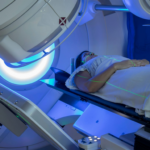
Radiation therapy is a cornerstone of modern cancer treatment, playing a crucial role in managing and curing various types of cancer. This article provides an in-depth look at how radiation therapy works, its different types, the treatment process, and what patients can expect. Highlighting the expertise of Dr. Jagdish Shinde, recognized as the Best Oncologist Doctor with a clinic located at Pimpri-Chinchwad, we aim to offer useful and sensible information for those seeking to understand this vital cancer treatment modality.
How Radiation Therapy Works
Radiation therapy, also known as radiotherapy, uses high doses of radiation to kill cancer cells or shrink tumors. The radiation damages the DNA inside the cancer cells, preventing them from growing and dividing. Over time, the damaged cancer cells die, and the body naturally eliminates them.
Types of Radiation Therapy
- External Beam Radiation Therapy (EBRT):
This is the most common form of radiation therapy, where a machine directs high-energy beams at the cancer from outside the body.
- Techniques:
- 3D Conformal Radiation Therapy (3D-CRT): Uses imaging to shape the radiation beams to the tumor’s contours.
- Intensity-modulated radiation Therapy (IMRT): Allows varying the intensity of the beams, targeting the tumor more precisely while sparing healthy tissue.
- Stereotactic Body Radiotherapy (SBRT): Delivers high doses of radiation to small, well-defined tumors in fewer sessions.
- Internal Radiation Therapy (Brachytherapy):
Involves inserting radioactive materials directly into or close to the tumor.
Commonly used for cancers of the cervix, prostate, breast, and uterus.
Types:
- Intracavitary Brachytherapy: Radioactive sources are placed in a body cavity close to the tumor.
- Interstitial Brachytherapy: Radioactive sources are implanted directly into the tissue.
- Systemic Radiation Therapy:
- Uses radioactive substances, such as radioactive iodine, that travel through the bloodstream to treat cancer throughout the body.
- Often used for thyroid cancer and certain types of lymphoma.
The Treatment Process
- Consultation and Planning:
The process begins with a consultation with a radiation oncologist, such as Dr. Jagdish Shinde at his clinic in Pimpri-Chinchwad. The oncologist will review the patient’s medical history, perform a physical exam, and discuss treatment options.
A planning session, or simulation, follows, where imaging tests (CT, MRI, PET scans) help map the treatment area.
- Treatment Delivery:
Treatment is typically delivered over several weeks, with patients receiving radiation five days a week. Each session lasts a few minutes, but the setup time may take longer.
During the session, the patient lies on a treatment table while the machine delivers the radiation beams.
- Side Effects Management:
Common side effects include fatigue, skin changes, and localized discomfort, depending on the treatment area.
The oncology team provides strategies to manage these side effects, ensuring the patient’s comfort and well-being.
Benefits of Radiation Therapy
- Effective Tumor Control:
Radiation therapy can effectively control the growth of many cancers, either curing them or significantly reducing their size.
- Preservation of Healthy Tissue:
Advanced techniques like IMRT and SBRT target tumors precisely, minimizing damage to surrounding healthy tissues.
- Combination with Other Treatments:
Radiation therapy is often used in conjunction with surgery, chemotherapy, or immunotherapy to enhance overall treatment efficacy.
- Palliative Care:
In advanced cancer cases, radiation therapy can relieve symptoms such as pain, bleeding, and obstruction, improving the patient’s quality of life.
Summary
Radiation therapy is a powerful tool in the fight against cancer, offering targeted treatment to destroy cancer cells and shrink tumors while preserving healthy tissue. With advancements in technology and techniques, the efficacy and safety of radiation therapy continue to improve. For those seeking expert care, Dr. Jagdish Shinde, the Best Oncologist Doctor at Pimpri-Chinchwad, provides state-of-the-art radiation therapy services, ensuring personalized and effective treatment plans. Understanding the role of radiation therapy can help patients and their families navigate the treatment journey with confidence and hope.




